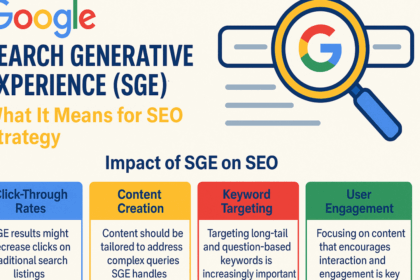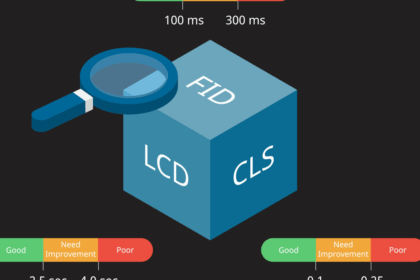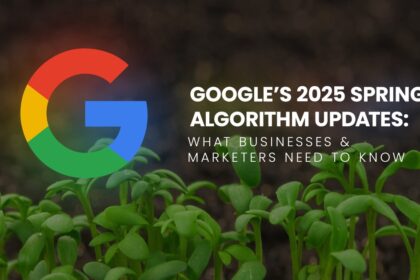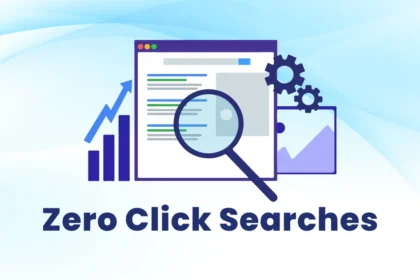The end of third-party cookies is one of the most significant shifts in digital marketing in over a decade. As major browsers—including Chrome—phase out support for cookies that track users across websites, marketers and SEOs are being forced to rethink how they understand, reach, and retain audiences.
But what does this mean for SEO? While search engine optimization doesn’t rely on cookies in the traditional sense, the broader implications of a privacy-first internet are reshaping how organic strategies function. In this post-cookie world, SEO is evolving—from how data is gathered, to how content is personalized, and how websites build long-term trust.
Here’s what the future of SEO looks like in the cookieless era.
1. SEO Becomes the Core of Customer Acquisition

With paid media losing some of its precision due to the loss of cross-site tracking, organic search is stepping back into the spotlight. Businesses that once heavily relied on retargeting and third-party audience data are now investing more in search visibility, authority, and trust signals.
This shift means:
- Greater emphasis on top-of-funnel content to capture early intent.
- More competitive SERPs as paid strategies bleed into organic efforts.
- Higher value placed on first-page rankings and featured snippets.
As cookie-based ad targeting weakens, SEO becomes a foundational strategy—not just a support function.
2. First-Party Data Gains Strategic Importance
The end of third-party cookies is ushering in the rise of first-party data—information you collect directly from your users through interactions on your own site. SEO plays a key role in acquiring this data, as organic traffic becomes a primary source of engaged users.
What this means for SEO:
- Optimizing for email signups, downloads, and on-site interactions becomes essential.
- Pages must be designed to convert—not just inform—turning searchers into subscribers or customers.
- SEO and CRM tools will increasingly integrate to enrich first-party profiles and tailor future campaigns.
Content that’s optimized to drive action—not just impressions—will win.
3. Context Over Tracking: Content Must Match Intent
Without cookies to track user behavior across sessions and platforms, marketers must lean into contextual relevance. This makes search intent and content alignment more important than ever.
In practice:
- Keyword research must go deeper than volume—understand what the user really wants.
- Search results that offer direct, clear, and authoritative answers will dominate.
- Topic clusters and content ecosystems help capture users at every stage of their journey.
SEO in a post-cookie world is less about following the user and more about being there when they need you.
4. Privacy-First UX Will Impact Rankings

Google has already signaled that user experience and trust are key to rankings. In a cookieless future, privacy signals—like transparent data policies, cookie consent banners, and secure browsing—are part of that experience.
Expect to see:
- Increased importance of HTTPS, no intrusive interstitials, and fast-loading pages.
- Sites with clear, ethical data practices earning better rankings and user trust.
- Regulatory compliance (GDPR, CCPA) becoming indirectly influential in SEO.
Being privacy-friendly is no longer just legal hygiene—it’s becoming a search signal.
5. AI and Personalization Will Be Cookieless
Search engines and websites alike are turning to AI-driven personalization that doesn’t rely on traditional tracking. Large language models and on-device learning allow tailored content and experiences based on user behavior in-session or contextually, without cookies.
This shift means:
- Dynamic content served based on search intent, device, or time of day.
- AI tools embedded into CMS platforms to auto-optimize headlines, meta tags, and recommendations.
- Content strategies that consider multiple user pathways and search intents, not just linear funnels.
Personalization isn’t going away—it’s just being reimagined.
6. SEO and Content Will Align with Identity Marketing
As brands lose the ability to track users across sites, they’ll rely more on users identifying themselves—by logging in, subscribing, or interacting. This gives rise to identity-based marketing, where SEO drives the discovery and first touch, and content nurtures long-term loyalty.
Strategies will include:
- Gated content or freemium models to collect user identity in exchange for value.
- Deeper integration between SEO, content marketing, and email nurturing.
- Stronger branding and storytelling to encourage voluntary engagement.
Your ability to build an audience that chooses to stay connected will determine long-term SEO success.
7. Search Engine Algorithms Will Favor Trust Signals
With misinformation, spam, and synthetic content on the rise, trust becomes currency in search. Google and other search engines are rewarding sites that demonstrate clear expertise, authority, and transparency.
To stay visible:
- Showcase real authors, credentials, and sources (E‑E‑A‑T).
- Provide detailed “About” and “Contact” information.
- Use structured data to help search engines understand your site’s credibility.
Trustworthiness isn’t just a ranking factor—it’s the backbone of post-cookie SEO.
8. Analytics Will Shift from Tracking to Understanding

With less granular tracking across domains, marketers will rely more on holistic insights than micro-level behaviors. SEO performance will be evaluated through new lenses—like topic authority, brand mentions, and engagement quality—rather than raw user journeys.
This evolution will favor:
- Content attribution models that assess value over time.
- SEO dashboards that integrate keyword trends with CRM or email data.
- Growth metrics like brand search volume and return visitor rate.
Measurement will focus less on “who clicked what” and more on what’s working overall.
Final Thoughts
SEO in a post-cookie world is not about loss—it’s about evolution. As third-party tracking fades, search takes on a more meaningful role: guiding users to trusted, relevant, and engaging experiences that respect their privacy.
To thrive, marketers must:
- Shift from chasing traffic to building relationships.
- Optimize not just for clicks, but for connection.
- Embrace ethical data practices as part of their SEO strategy.
In the future, visibility will belong to brands that are not only found—but also trusted. SEO isn’t going away—it’s becoming more human, more integrated, and more essential than ever.






